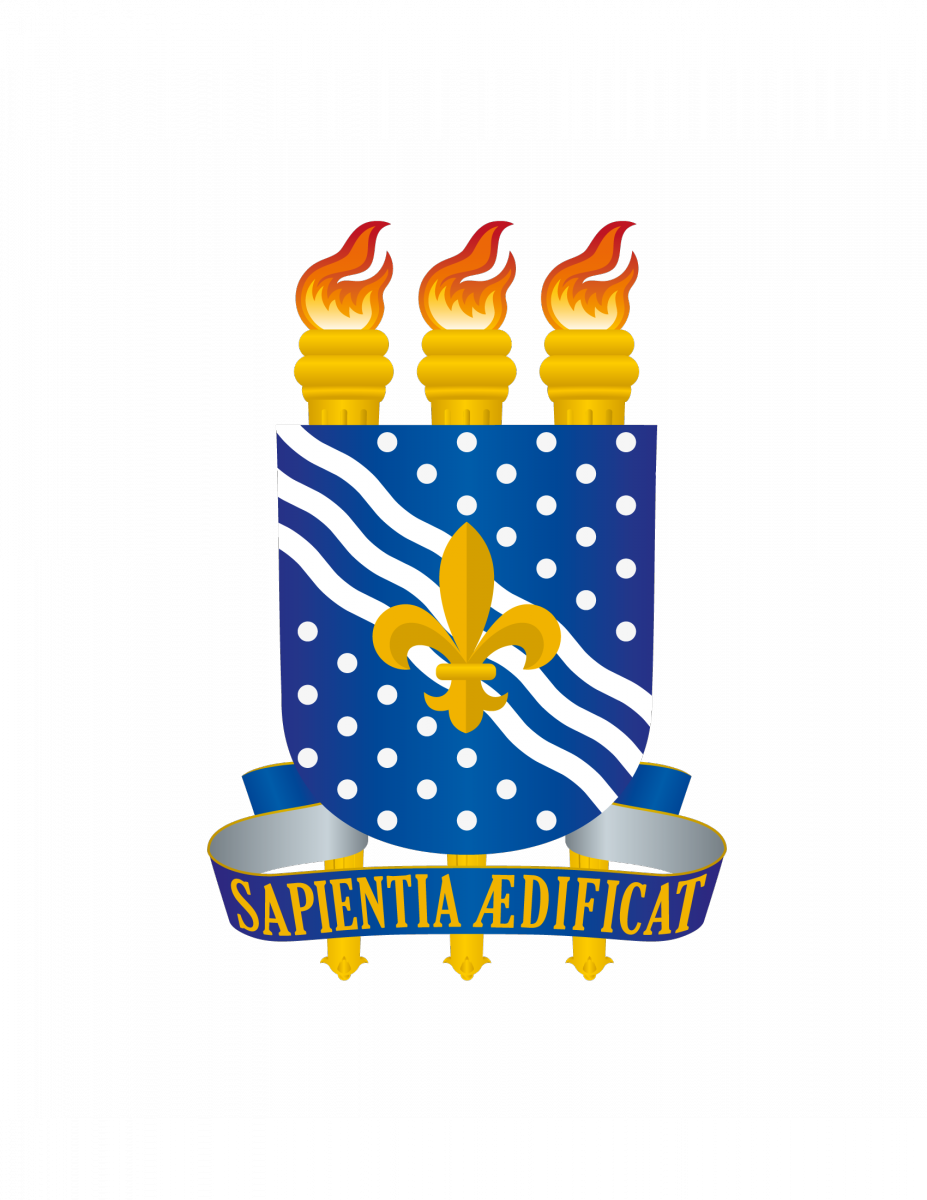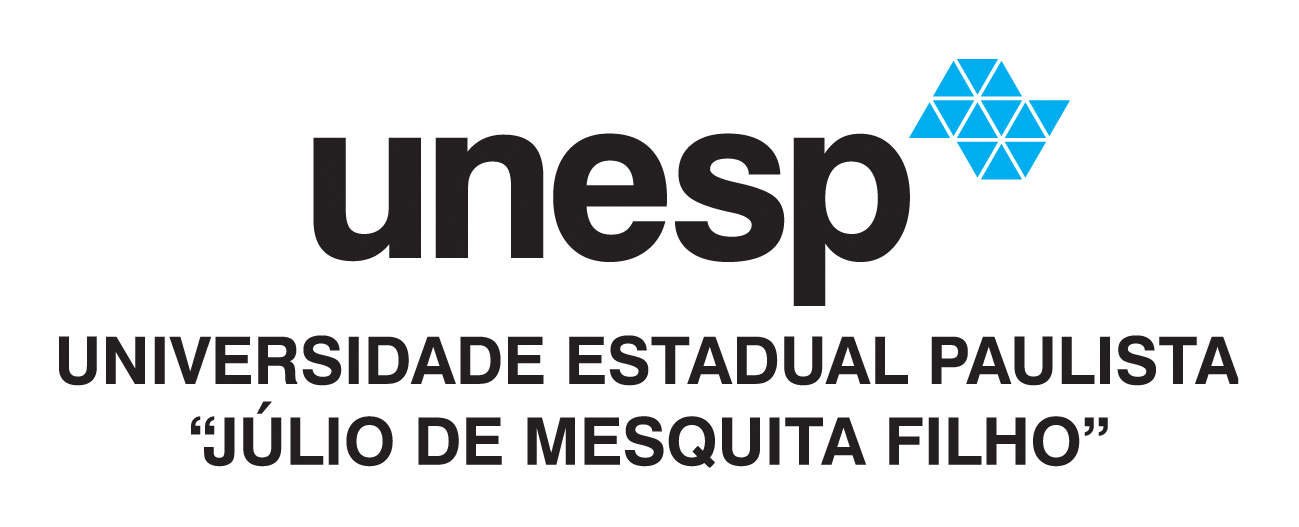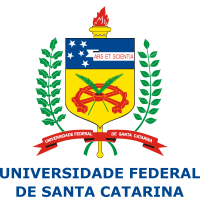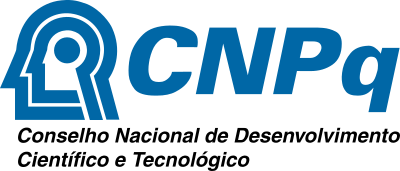Information, Data and Technology
Guilherme Ataíde Dias
Federal University of Paraíba (UFPB) | guilhermeataide@ccsa.ufpb.br | https://orcid.org/0000-0001-6576-0017 | https://lattes.cnpq.br/9553707435669429
Undergraduate in Computer Science from the Federal University of Paraíba UFPB Campus II (1990), Bachelor in Law by the University Center of João Pessoa UNIPE (2010), Master in Organization & Management by Central Connecticut State University? CCSU (1995), PhD in Information Science (Communication Sciences) at the University of São Paulo? USP (2003) and Post-Doctor by UNESP (2011). He is currently Associate Professor III at the Federal University of Paraíba, where he holds a degree in Information Science. He is involved with Post-Graduation through the Post-Graduate Program in Information Science and Postgraduate Program in Administration, both of UFPB. Has research interest in the following themes: Knowledge Representation; Information Architecture; Information security; Information and Communication Technologies; Health Information; Social networks; Free software; Law, Ethics and Intellectual Property in Cyberspace; Scientific Data Management; Legal Information; He is currently Research Productivity Scholar (PQ) at CNPq.
Moisés Lima Dutra
Federal University of Santa Catarina (UFSC) | moises.dutra@ufsc.br | https://orcid.org/0000-0003-1000-5553 | https://lattes.cnpq.br/1973469817655034
Professor, Federal University of Santa Catarina, Department of Information Science. PhD in Computing from the University of Lyon 1, France (2009). Master in Electrical Engineering, subarea Automação e Sistemas (2005) and Bachelor in Computing (1998) from the Federal University of Santa Catarina. His current lines of research are related to Applied Artificial Intelligence (Machine Learning, Deep Learning, Semantic Web, Linked Data) and Data Science (Big Data, IoT). It is linked to the research group ITI-RG (Intelligence, Technology and Information - Research Group).
Fábio Mosso Moreira
São Paulo State University (UNESP) | fabio.moreira@unesp.br | https://orcid.org/0000-0002-9582-4218 | https://lattes.cnpq.br/1614493890723021
Undergraduate degree in Business Administration from the Faculty of Sciences and Engineering (UNESP / Tupã). Master degree in Information Science - (UNESP / Marília). PhD student in the Graduate Program in Information Science (UNESP / Marília). Member of the Research Group - GPNTI (UNESP / Marília) and GPTAD (UNESP / Tupã). Collaborator of the Project Digital Skills for Family Farming (CoDAF). Content editor of the Electronic Journal Digital Skills for Family Farming (RECoDAF). Professional Technical Skill in Informatics from ETEC Massuyuki Kawano - Centro Paula Souza de Tupã. Professional experience in the ERP Information Systems for Logistics Operations. Works with research in Information Science, studying the use of digital resources for access to government data of Public Policies in the context of the small farmer.
Fernando de Assis Rodrigues
Federal University of Pará (UFPA) | fernando@rodrigues.pro.br | https://orcid.org/0000-0001-9634-1202 | https://lattes.cnpq.br/5556499513805582
Professor at Federal University of Pará. Ph.D. and M.S. in Information Science, Post-bachelor in Internet Systems and Bachelor of Science in Information Systems. Most of his experience is based on works developed as a Full Stack Developer and Database administrator, especially with Python, Java and PHP programming languages, as well as MySQL, MariaDB, SQLite3 and PostgreSQL databases. Also, he lectured classes related to the context of Computer Science to undergraduate and graduate students at UNESP. Currently, He workd as a postdoc researcher at UNESP labs, working in data studies.
Ricardo César Gonçalves Sant'Ana
São Paulo State University (UNESP) | ricardo.santana@unesp.br | https://orcid.org/0000-0003-1387-4519 | https://lattes.cnpq.br/1022660730972320
Associate Professor at the Paulista State University - UNESP, Faculty of Sciences and Engineering - FCE, Campus de Tupã, on an exclusive dedication, where he is Chairman of the Monitoring and Evaluation Committee of the Graduate Courses - CAACG, Local Coordinator of the Center for Studies and Pedagogical Practices - CENEPP and Local Ombudsman. Professor of the Post-Graduate Program in Information Science of the Paulista State University, Marília Campus. Graduated in Mathematics and Pedagogy, Master in Information Science (2002), Doctorate in Information Science (2008) and Freelance in Management Information Systems by UNESP (2017). He has specialized in Object Orientation (1996) and Management of Information Systems (1998). Ad hoc advisor of periodicals and development agencies. Member of the Research Group - New Technologies in Information GPNTI-UNESP. Has experience in the area of ??Computer Science, currently conducts research focused on: information science and information technology, investigating issues related to the Data Life Cycle, Transparency and Information Flow in Productive Chains. He worked as a professor at Faccat Faculdade de Ciências Contábeis e Administração de Tupã, where he coordinated a course of Administration with Qualification in Systems Analysis for ten years and the course of Licenciatura in Computing. He worked in the private sector as a consultant, integrator and researcher of new information technologies from 1988 to 2004.
Organizators
Guilherme Ataíde Dias
Federal University of Paraíba (UFPB) | guilhermeataide@ccsa.ufpb.br | https://orcid.org/0000-0001-6576-0017 | https://lattes.cnpq.br/9553707435669429
Undergraduate in Computer Science from the Federal University of Paraíba UFPB Campus II (1990), Bachelor in Law by the University Center of João Pessoa UNIPE (2010), Master in Organization & Management by Central Connecticut State University? CCSU (1995), PhD in Information Science (Communication Sciences) at the University of São Paulo? USP (2003) and Post-Doctor by UNESP (2011). He is currently Associate Professor III at the Federal University of Paraíba, where he holds a degree in Information Science. He is involved with Post-Graduation through the Post-Graduate Program in Information Science and Postgraduate Program in Administration, both of UFPB. Has research interest in the following themes: Knowledge Representation; Information Architecture; Information security; Information and Communication Technologies; Health Information; Social networks; Free software; Law, Ethics and Intellectual Property in Cyberspace; Scientific Data Management; Legal Information; He is currently Research Productivity Scholar (PQ) at CNPq.
Moisés Lima Dutra
Federal University of Santa Catarina (UFSC) | moises.dutra@ufsc.br | https://orcid.org/0000-0003-1000-5553 | https://lattes.cnpq.br/1973469817655034
Professor, Federal University of Santa Catarina, Department of Information Science. PhD in Computing from the University of Lyon 1, France (2009). Master in Electrical Engineering, subarea Automação e Sistemas (2005) and Bachelor in Computing (1998) from the Federal University of Santa Catarina. His current lines of research are related to Applied Artificial Intelligence (Machine Learning, Deep Learning, Semantic Web, Linked Data) and Data Science (Big Data, IoT). It is linked to the research group ITI-RG (Intelligence, Technology and Information - Research Group).
Fábio Mosso Moreira
São Paulo State University (UNESP) | fabio.moreira@unesp.br | https://orcid.org/0000-0002-9582-4218 | https://lattes.cnpq.br/1614493890723021
Undergraduate degree in Business Administration from the Faculty of Sciences and Engineering (UNESP / Tupã). Master degree in Information Science - (UNESP / Marília). PhD student in the Graduate Program in Information Science (UNESP / Marília). Member of the Research Group - GPNTI (UNESP / Marília) and GPTAD (UNESP / Tupã). Collaborator of the Project Digital Skills for Family Farming (CoDAF). Content editor of the Electronic Journal Digital Skills for Family Farming (RECoDAF). Professional Technical Skill in Informatics from ETEC Massuyuki Kawano - Centro Paula Souza de Tupã. Professional experience in the ERP Information Systems for Logistics Operations. Works with research in Information Science, studying the use of digital resources for access to government data of Public Policies in the context of the small farmer.
Fernando de Assis Rodrigues
Federal University of Pará (UFPA) | fernando@rodrigues.pro.br | https://orcid.org/0000-0001-9634-1202 | https://lattes.cnpq.br/5556499513805582
Professor at Federal University of Pará. Ph.D. and M.S. in Information Science, Post-bachelor in Internet Systems and Bachelor of Science in Information Systems. Most of his experience is based on works developed as a Full Stack Developer and Database administrator, especially with Python, Java and PHP programming languages, as well as MySQL, MariaDB, SQLite3 and PostgreSQL databases. Also, he lectured classes related to the context of Computer Science to undergraduate and graduate students at UNESP. Currently, He workd as a postdoc researcher at UNESP labs, working in data studies.
Ricardo César Gonçalves Sant'Ana
São Paulo State University (UNESP) | ricardo.santana@unesp.br | https://orcid.org/0000-0003-1387-4519 | https://lattes.cnpq.br/1022660730972320
Associate Professor at the Paulista State University - UNESP, Faculty of Sciences and Engineering - FCE, Campus de Tupã, on an exclusive dedication, where he is Chairman of the Monitoring and Evaluation Committee of the Graduate Courses - CAACG, Local Coordinator of the Center for Studies and Pedagogical Practices - CENEPP and Local Ombudsman. Professor of the Post-Graduate Program in Information Science of the Paulista State University, Marília Campus. Graduated in Mathematics and Pedagogy, Master in Information Science (2002), Doctorate in Information Science (2008) and Freelance in Management Information Systems by UNESP (2017). He has specialized in Object Orientation (1996) and Management of Information Systems (1998). Ad hoc advisor of periodicals and development agencies. Member of the Research Group - New Technologies in Information GPNTI-UNESP. Has experience in the area of ??Computer Science, currently conducts research focused on: information science and information technology, investigating issues related to the Data Life Cycle, Transparency and Information Flow in Productive Chains. He worked as a professor at Faccat Faculdade de Ciências Contábeis e Administração de Tupã, where he coordinated a course of Administration with Qualification in Systems Analysis for ten years and the course of Licenciatura in Computing. He worked in the private sector as a consultant, integrator and researcher of new information technologies from 1988 to 2004.
The Creative Commons and Free Software Licenses as forms of protection in the shared information society
Pages: 464 - 475
Authors
Maria Carolina Zanini Ferreira
Federal University of Santa Catarina (UFSC) | mariacarolina.zanini@gmail.com | https://lattes.cnpq.br/7956892598008518
Graduation in International Relations from Curitiba University Center. He began his professional career at the International Relations Office at the Federal University of Paraná (UFPR), and later at the Innovation Agency of the University of São Paulo (USP) as an Industrial Technological Development Scholar at CNPq, taking courses in the areas of Intellectual Property, Innovation and entrepreneurship and working with business demands that require technical information to improve their products, processes and performance in their business. Participated in the Scientific Initiation of the National Academy of Transnational Studies (ANET) in the period 2014/2015 in the research line of Law and Economic Development, with the research plan in Innovation and Entrepreneurship in the Countries that makes up the BRICS. Participated in the XX Simulation of International Relations organized by the Naval School, receiving Honorable Mention. In 2015, he was a Research Fellow at the Federal University of Santa Maria (UFSM), working in the areas of Entrepreneurship and Innovation, and is currently a Research Fellow at the Federal University of Santa Catarina (VIA Estação Conhecimento). Strengthening of Innovation Habitats in partnership with FAPESC and the Secretariat of State for Sustainable Development (SC), Innovation Ecosystem in Santa Catarina: Digital Tool for the Explicitation of Knowledge and Innovation Habitats in the World: Tool for Explicitation and Dissemination of the knowledge.
Clarissa Stefani Teixeira
Federal University of Santa Catarina (UFSC) | clastefani@gmail.com | https://orcid.org/0000-0002-6922-8877 | https://lattes.cnpq.br/6668948766545628
Post-Doctor and PhD in Production Engineering, Federal University of Santa Catarina. She is a professor at the Department of Knowledge Engineering (EGC) at the Federal University of Santa Catarina. Professor in the Post-Graduate Program in Engineering and Knowledge Management (Master's and Doctorate) and in the Professional Master's Degree in Intellectual Property and Technology Transfer for Innovation (PROFNIT). In the scientific area has more than 170 articles published and is a reviewer of 14 national and international journals. He has experience in designing and managing projects with funding and funding bodies such as the Inter-American Development Bank (IDB) and the National Bank for Economic and Social Development (BNDES). Has experience in the public area acting as Science, Technology and Innovation Manager of the State Government of Santa Catarina - Secretariat of Sustainable Economic Development (SDS) in the management and operation of State-level projects and elaboration of the ST & I State Policy and implementation of habitats of innovation. In addition, it acts in support of projects with public-private partnerships and in the implementation of government innovation laboratories, mainly with experience of changing culture for innovation in public bodies and in the implementation of processes of open innovation. In a business environment, he was involved in management of innovation habitats, construction of methodologies for innovation habitats, associating management of incubators, pre-incubators, innovation centers, maker and coworking environments. She acted as general supervisor of the redesign of the Professor's Portal - UFSC partnership and the Ministry of Education and participated in the implementation of the innovation cluster in education in Santa Catarina. Coordinates the Strengthening of Innovation Habitats project that activates the Santa Catarina ecosystem and the implantation of the 13 Innovation Centers of the State of Santa Catarina, of the Innovation Network of Florianópolis and in the implantation of Living Lab Florianópolis. Are you the leader of the research group VIA Knowledge Station? the only Brazilian group certified in CNPq with a focus on innovation and entrepreneurship habitats. (via.ufsc.br). The group owns methodologies of orchestration of ecosystem, implantation and operation of environment maker, incubators, pre-incubators, spaces of open innovation with interaction of startups and gamification for innovation. He has international experience and connections with researchers and innovation environments from countries such as Spain, Portugal, Colombia, Mexico, China, Italy, Argentina and Uruguay.
Enrique Muriel-Torrado
Federal University of Santa Catarina (UFSC) | enrique.muriel@ufsc.br | https://orcid.org/0000-0003-0969-9500 | https://lattes.cnpq.br/6493679032893430
Graduation in Librarianship and Documentation from the University of Extremadura (2005), a Bachelor's degree in Documentation from the University of Extremadura (2007), a master's degree in Digital Documentation - Universitat Pompeu Fabra (2008) University of Granada (2008) and PhD in Documentation - University of Granada (2012). He is currently an assistant professor at the Federal University of Santa Catarina. He has experience in the area of Information Science and works mainly in the following subjects: copyright, copyleft, privacy, information society and services and tools in information units. Editor in Chief of the Encontros Bibli. Member of the ITI-RG (Intelligence, Techonogy and Information - Research Group) of UFSC and the Documentation Software Group of the University of Granada.
Video Transcription
Olá tudo bem meu nome é Maria Carolina Zanini Ferreira sou do programa de pós-graduação em propriedade intelectual e transferência de tecnologia para inovação (PROFNIT) na Universidade Federal de Santa Catarina a UFSC e venho por meio desse vídeo abordar um pouco sobre o artigo que eu submeti para o 2º Workshop de Informação, Dados e Tecnologia (WIDAT) 2018 que acontecerá na Universidade Federal da Paraíba.
O tema do meu artigo que eu submeti é sobre as licenças creative commons e software livre como forma de proteção da sociedade da informação compartilhada eu realizei essa pesquisa que é uma das partes é um dos temas da minha dissertação de mestrado com os meus orientadores.
Então a professora doutora Clarissa Stefani Teixeira do programa de pós-graduação em engenharia do conhecimento da UFSC e o professor doutor Henrique Muriel Torrado que é do programa de pós-graduação da ciência da informação.
Então basicamente o presente artigo o presente tema vai abordar de que forma essas licenças mais especificamente o Creative Commnons e Software Livre elas são alternativas de proteção intelectual em uma sociedade da informação compartilhada né então hoje em dia a gente começa a ter uma sociedade que ela é rica em conhecimento ela é rica em informação e não somente isso a descentralização e o compartilhamento desses artigos eles acabam trazendo novos fluxos informacionais e principalmente novas configurações culturais hoje em dia todo mundo está conectado todo mundo tem conhecimento e informação de uma maneira muito fácil, muito volátil muito rápida com o advento das tecnologias da comunicação e da informação hoje a gente conhece a globalização onde todo mundo está conectado não existem mais fronteira para o conhecimento para informação.
Hoje o acesso a todos esses ativos que são de altíssimo valor agregado eles são muito rápidos e acessíveis para todos por meio de uma pesquisa descritiva exploratória eu busco através de uma revisão sistemática através de uma revisão bibliográfica identificar quais são as características da nossa sociedade hoje a nossa sociedade é uma sociedade onde um indivíduos grupo específico como eu já falei ele pode ter um acesso à informação acesso à informação de um riquíssimo banco de dados do mundo inteiro e pode se conectar ele pode se ligar com todo mundo e com isso acabar sendo desenvolvidas novas tecnologias novas formas de interação novas formas de comunicação que trouxeram novos paradigmas frente a nossa sociedade como a gente conhecia.
Então não somente isso mas a gente começa a questionar vários pontos e até apontar alguns riscos do uso desses dessas informações desse conhecimento que acabam resvalando se inserindo no campo dos direitos autorais, então que é um arcabouço legal que assegura o autor daquela obra intelectual daquele conhecimento, proteção de direitos sobre a sua obra, automaticamente obtido com a sua criação e não somente isso novas tecnologias elas começam a ser inseridas no campo dos direitos autorais no campo desse arcabouço legal é um exemplo de software.
Então lembrando lembro novamente direitos autorais foi uma legislação que veio pra internet mas isso começou a gerar vários questionamentos não somente aqui em âmbito nacional mas como âmbito internacional é um pontapé o movimento do software livre daí a gente começa a ter um pouquinho mais o software está envolvido com direitos autorais ele foi iniciado pelo xeque Salman e ele transita em seu discurso o livre acesso ao código do código fonte do software o mundo de uma época ao mesmo tempo você tinha essa mudança de pensamento de compartilhar de colaborar você tinha é pessoas como Bill Gates da Microsoft que defendia que o software deveria ser protegido.
Ele deveria ser passível de patente então foi nessa onda que Richard não concordou quando eu não concordo com isso acho que a gente tem que deixar o código aberto quanto mais pessoas desenvolver, quanto mais a gente saber o que as pessoas estão produzindo, mais nossa comunidade ela vai crescer, então e se desenvolver conhecimento vai ser compartilhado.
Então ele acaba criando em 1983 mais ou menos um sistema operacional completamente livre chamado GNU o que foi posteriormente compartilhado por uma licença chamada de GPL. Ela foi uma das primeiras licenças que usou o direito autoral para compartilhar, ou seja, uma licença que você respeitaria o direito do autor.
Mas não somente respeitar o direito do autor, você tem que dar ciência ao autor mas que também o autor estaria compartilhando com você de uma maneira totalmente aberta o seu código, e que você também deveria compartilhar e continuar compartilhando software de uma forma aberta com o código fonte aberto, então essa foi uma primeira licença que teve o pensamento do copyleft o que é que a gente conhece, que o Copyright que são os direitos do autor que a gente disse que o copyleft que vem contra essa questão de restringir de proteger de deixar em sigilo algumas informações esse movimento começou a ganhar mais corpo com a criação Free Software Foundation uma organização criada pelo próprio Stallmam, que tem ainda como principal objetivo de promover nessa cultura do software livre e também dessa cultura de compartilhamento de colaboração frente do que a gente conhece hoje, de patentear o software então ele vem com essa ideia de compartilhar software com isso foram criadas diversas licenças, depois softwares livre, totalmente livres que também possuíam licenças mais permissiva, licenças também que assegurava o seu código fonte com isso.
Com essa onda também tinha um lado a onda do compartilhamento de obras literárias e revistas artigos científicos fotografias filmes enfim então a gente começou também ter essa nova onda e com isso o professor Laércio inspirado na lei também pela iniciativa do Stallmam ele acaba criando seis licenças chamadas Creative Commons voltadas para obras literárias então são licenças públicas padronizadas que estabelece direitos concedidos às obras intelectuais elas vão das mais permissivas as mais restritivas onde você também tem o seu direito do autor assegurado você coloca que você a minha obra pode ser compartilhada desde que seja né é deus seja referenciado e também por algumas outras regras, alguns outros direitos, que vai variar de licença para licença.
Ao todo essas são seis licenças do Creative Commons. Essas licenças, como vocês podem ver, elas trouxeram importantes reflexões, não somente uma necessidade da gente rever mesmo o direito autoral nessa legislação que a gente tenha hoje, ela de fato vai ao encontro dessas novas tecnologias que é um software ou através desse compartilhamento das obras literárias.
Hoje a gente está tendo uma discussão sobre a mudança da legislação sobre novas formas de você compartilhar, mas que estão ainda em andamento e as licenças elas também são uma forma de prática de mostrar o que já está tentando ser feito para tentar remediar, e também que você continue compartilhando essas obras mas que não direitos autorais, porque ela usa do arcabouço legal dos direitos autorais para compartilhar, para licenciar seus trabalhos.
É de uma percepção de direito do autor você tem que dar crédito às pessoas, mas que você possa compartilhar sobre determinadas regras geralmente têm uma divergência ao falar de propriedade intelectual como a gente conhece, e essas licenças elas acabam sendo uma forma de você inserir e de você unir tanto a proteção intelectual ao fato direito autor, mas que esse autor também possa compartilhar com os seus usuários, com os seus, enfim, os seus leitores, desenvolvedores, seja um público-alvo sem que isso tira seus direitos.
Então é interessante a gente observar que essas licenças ela meio que acaba unindo essa nova realidade da sociedade da informação compartilhada mas que também tem o envolvido ele seu capital intelectual que por si só está protegido sobre leis de propriedade intelectual mais precisamente os direitos autorais e que por isso precisam umas regras precisam ser respeitadas.
Então a gente tá aí toda essa com essa reflexão do meu trabalho esse trabalho que eu submeti no WIDAT é um pedaço da minha dissertação de mestrado que está sendo desenvolvido aqui na Universidade Federal de Santa Catarina e que eu tento trazer um pouco para discussão essas questões que são tão atuais hoje em dia que estão sendo protagonista nesses grandes congressos que a gente tem de direitos autorais de propriedade intelectual no que se refere à sociedade da informação, acesso de dados e até mais fundo na inteligência artificial Big Data e tudo mais.
Enfim eu agradeço a oportunidade pelo WIDAT por gravar esse vídeo está disseminando esse conhecimento é um assunto particularmente eu gosto bastante é meu tema de dissertação do mestrado então aqui vai ficar os contatos é tanto o meu tanto dos meus orientadores.
Para mais informações e trabalhos em conjunto de ideias críticas enfim tudo que possa agregar conhecimento é sempre muito bem-vindo, muito obrigado, e até mais




